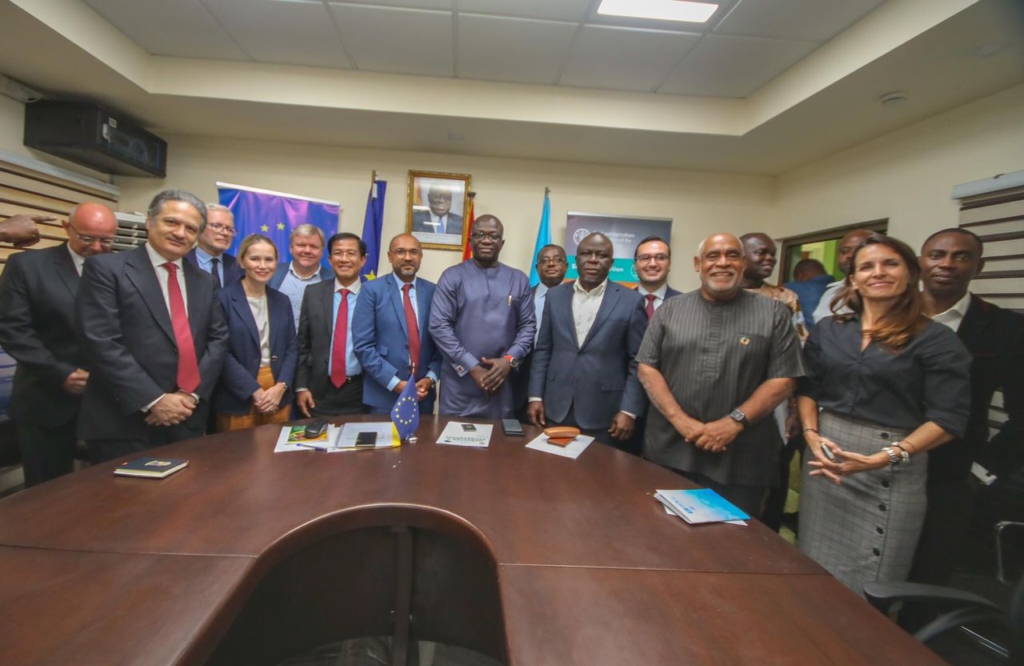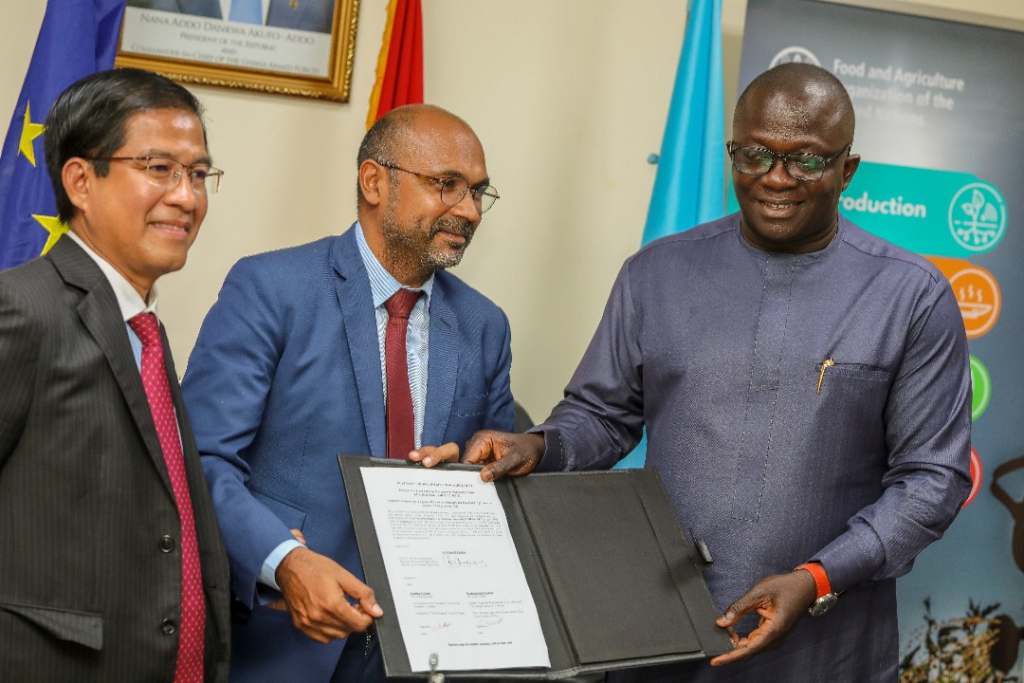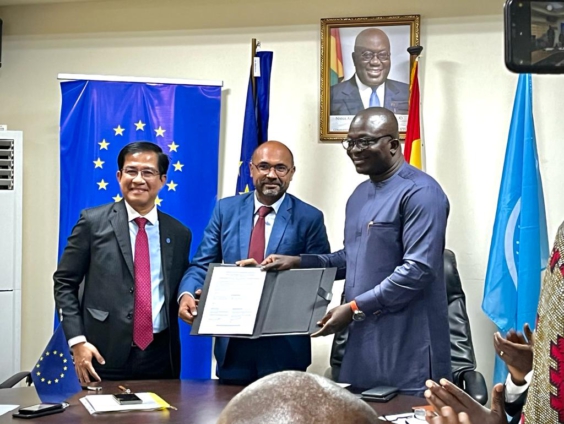In a significant collaborative effort, the European Union (EU), the Government of Ghana and the Food and Agriculture Organization of the United Nations (FAO) have joined forces to tackle the pressing issue of food insecurity in Northern Ghana.
The €10 million project, funded by the EU and led by FAO, aims to provide support to vulnerable populations in the region, benefitting more than 50,000 people over the course of three years.

The project in northern Ghana aims to achieve long-term food security and sustainability by focusing on key outcomes, including economically sustainable and inclusive food systems, empowering communities to develop resilient and profitable food production systems, and promoting environmental sustainability through practices that protect the environment and conserve natural resources.
The project will improve social sustainability and gender responsiveness within food systems, ensuring fair access to food and nutrition, especially for women and vulnerable groups. It also aims to enhance governance and institutional sustainability by strengthening governance structures to ensure the long-term viability of food systems.
The initiative demonstrates the EU's commitment to international solidarity in the face of global food security challenges, which have been exacerbated by Russia's aggression against Ukraine. It underscores the shared dedication to ensuring food security, reducing poverty, and promoting sustainable development in Ghana.

EU Ambassador to Ghana, Irchad Razaaly, expressed, the €10 million emergency measure has been mobilized in record time and represents the commitment and solidarity of the EU and its Member States in the face of rising food costs.
"This 10 million Euro emergency measure has been mobilized in record time and represents the commitment and solidarity of the EU and its Member States in the face of rising cost of food and to safeguard food security and transitioning to more resilient food systems in Ghana," Irchad said
Yurdi Yasmi, FAO Deputy Regional Representative for Africa and Representative in Ghana, emphasized the importance of collaboration, stating, the joint collaboration between FAO, the European Union, and the Government of Ghana shows their commitment to rural families in Ghana and ending hunger and malnutrition while supporting the transition to more sustainable agrifood systems.
“The joint collaboration between FAO, the European Union and the Government of Ghana shows our commitment to rural families in Ghana and ending hunger and malnutrition while supporting the transition to more sustainable agrifood systems," Yurdi said.
The allocated funds will primarily focus on the sustainable development of critical agribusiness value chains, including maize, millet, sorghum, groundnut, vegetables (tomatoes), poultry, and piggery.
These efforts complement the Government of Ghana's initiatives, such as Planting for Jobs Phase 2, aimed at mitigating the adverse impacts of rising food, fertilizer, and fuel prices in vulnerable areas to alleviate poverty, hunger, and malnutrition.
Bryan Acheampong, Minister for Food and Agriculture, expressed his gratitude, saying, the Government appreciates the EU and ever-reliable partner, the FAO, coming in at a time when the need to refocus the food systems to deliver on nutrition and resilience is being consummated into the Planting for Food and Jobs, Phase II program.
"The Government appreciates the EU and ever reliable partner, the FAO, coming in at the time when the need to refocus our food systems deliver on nutrition and resilience is being consummated into the Planting for Food and Jobs, Phase II programme," said Bryan
Over three agricultural seasons, the EU-funded project aims to support at least 10,000 households, benefitting approximately 6,000 maize farmers, 2,400 millet farmers, and 4,200 sorghum farmers in targeted districts.
Women, youth, and value chain actors will receive capacity-building support, access to post-harvest technologies, and training on climate change adaptation, market access, financial services, and pest and disease management. This collaborative effort marks a significant step forward in addressing food insecurity and promoting sustainable development in Northern Ghana, offering hope and opportunity to those who need it most
Latest Stories
-
Keep Supreme Court retirement age at 70 – Justice Ackaah-Boafo urges
7 minutes -
Mr. Mike Eghan
8 minutes -
Mr Kofi Amponsah-Efah
12 minutes -
Judges must be AI literate – Justice Ackaah-Boafo
16 minutes -
Mrs. Victoria Ama Serwah Arthur
30 minutes -
Equater Energy to launch BuyPower Gh app on July 1
40 minutes -
KMA restricts street trading, enhances traffic regulations as Kumasi welcomes Eswatini King
45 minutes -
Yellow Card partners with Visa to accelerate stablecoin adoption across emerging economies
47 minutes -
Ghana’s Mathematics team excels at 2025 Pan African Olympiad
57 minutes -
One dead, 4 injured in multi-vehicle crash on Cape Coast–Takoradi–Accra highway
1 hour -
AG’s public statements don’t influence judicial rulings – Justice Ackaah-Boafo
1 hour -
Justice Ackaah-Boafo: Ghana needs more lawyers to match justice system’s demand
2 hours -
Six new Adinkra symbols unveiled to signify Asantehene’s unparalleled leadership
2 hours -
GOIL delivers a robust performance in 2024
2 hours -
Bolt partners with Fido Credit to offer loans to drivers in Ghana
2 hours

